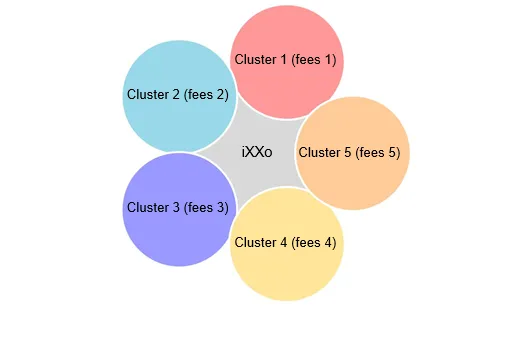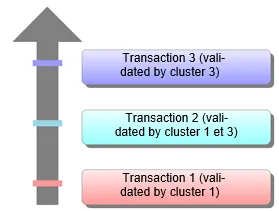iXXo chose to base its development efforts on an Ethereum fork, and to add a new consensus called "MIXED PROOF OF AUTHORITIES". Originally, a proof of authority protocol trust is based on the identities of known block validators, chosen to have the same legal characteristics.
However, working with similar identities lead to "CORPORATION" or "INFORMAL NET-WORKS" centralization effects, where all validators nodes having common practices can merge and act in their collective interests.
True decentralization requires to organize competition among different "COR-PORATIONS" (or informal networks with identity type as a common characteristic). They compete on their blockchain fees level, leading also to some heterogeneous fees costs proposals among clusters.

Competing identities "cluster" will lead to some heterogeneous level of trusts for blockchain tarnsactions.

Thus, our protocol offers different level of trust, each decentralized application or blockchain users being able to select the required level for every operation. To do that, he chooses, in his configuration, which clusters he trusts. The details of this big change in the traditional blockchain approach is designed in the "Deep dive in the technology".
An example of a cluster of validating nodes operators are French bailiffs, legally responsible for confirming transactions, who may be punished by criminal law for com-mitting fraud. Other possible clusters could be public notaries, or also some public nodes on a custom consensus (such as COSMOS NETWORKS on a custom "ZONE").
dApps could require low security operations (proof of existence for example) on low security clusters, and token transfers transactions on another clusters. They could also trust only selected clusters for all operations.
All clusters share the same chain of blocks.
Transaction time for MPOS is reduced to 3s and estimated availability should reach 1000 TPS.